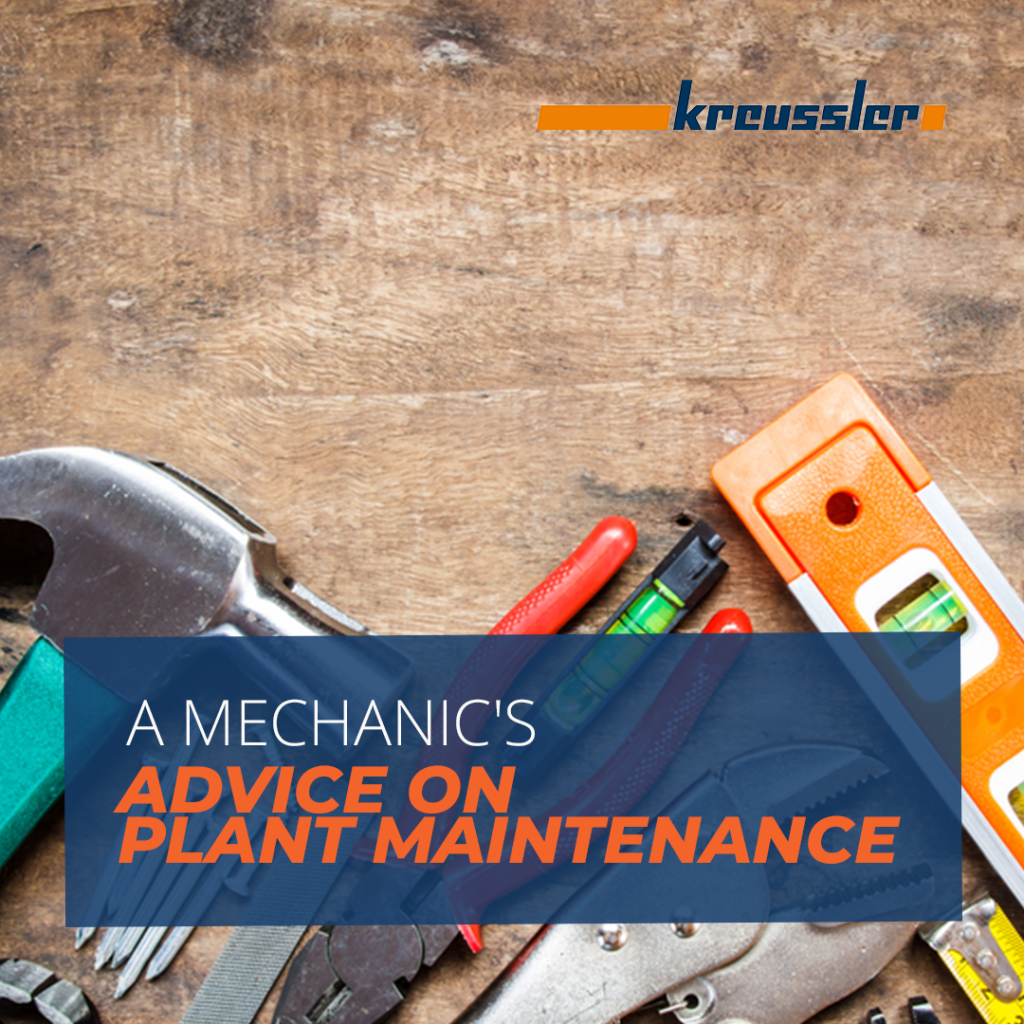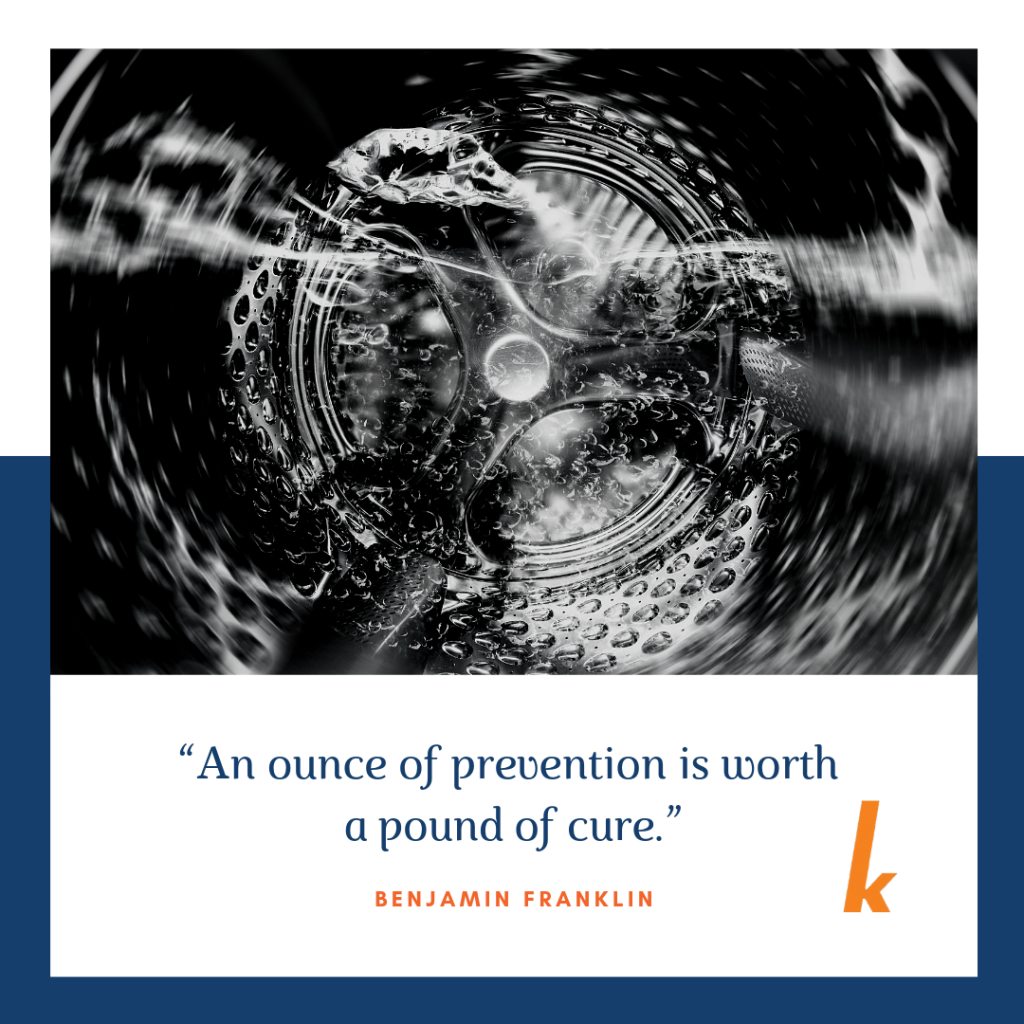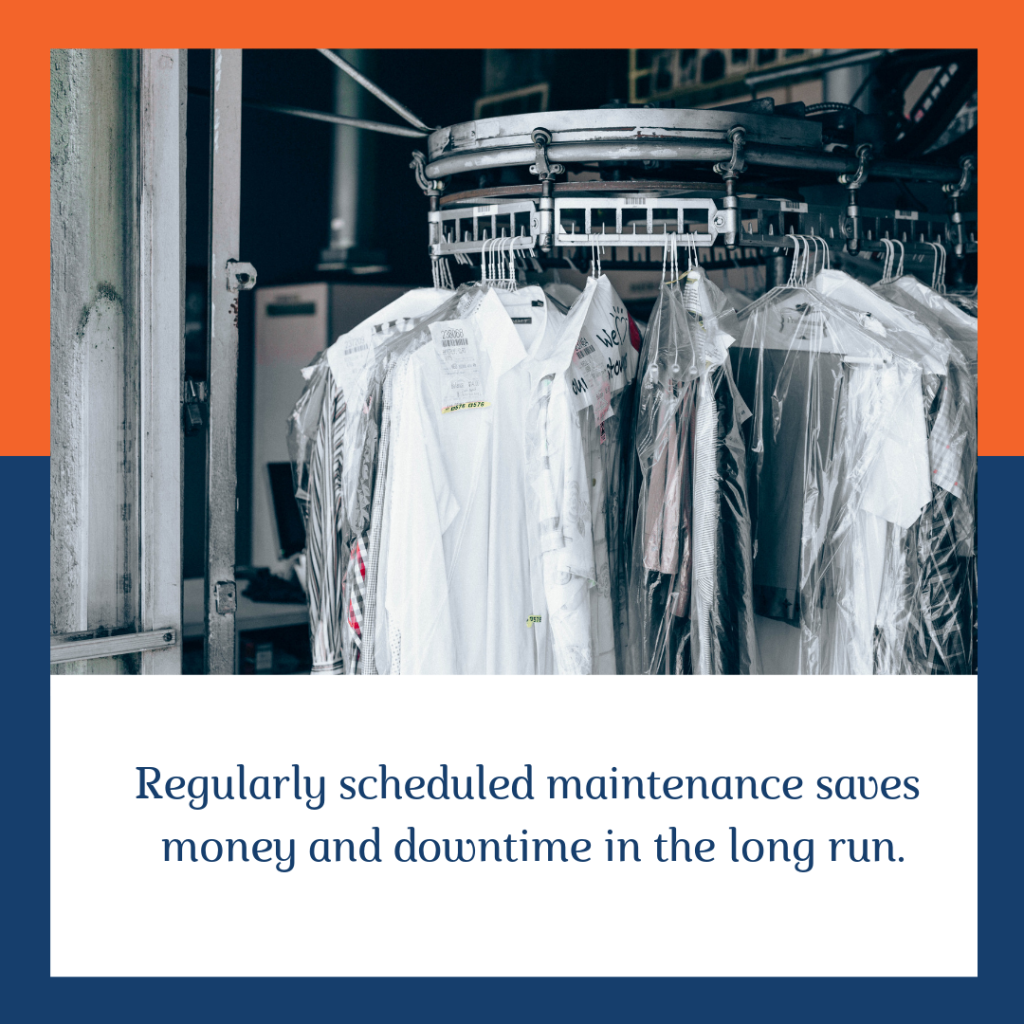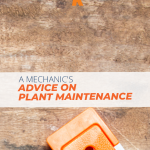This month we’re exploring machine maintenance. Richard Fitzpatrick interviewed Kevin Marois of Integrity Mechanical in Alberta, Canada who shares excellent advice for dry cleaners on what machine maintenance can help keep your equipment smoothly with fewer equipment failures.
This was a recorded interview that was edited lightly for content.
Richard Fitzpatrick: I would like to introduce our guest this month. It’s Kevin Marois. Kevin is the owner of Integrity Mechanical, Kevin and his wife, Paula. Integrity Mechanical is a full-service equipment company for the Alberta province, but you also extend into Saskatchewan and British Columbia now. Is that correct?
Kevin Marois: That’s correct. We do a little bit of work in those provinces.
Richard Fitzpatrick: How long have you been in the dry cleaning equipment business?
Kevin Marois: We’ve owned our company for 16 years now. Before that I worked for another distributor for a year and a half doing equipment, sales, and installation. Before that, I was the general manager at Todd’s Cleaners in Edmonton, one of the larger cleaners up there. We had five delivery routes and about 30 staff. Then previous to that, I spent 12 years as an auto mechanic. I had a gas station at one point.
Kevin Marois: It was a Gulf station, so we serviced most makes and models. Petro Canada bought Gulf, and they ended up with three facilities in four blocks and they closed ours. I just said that was it and it was time for a change.
Richard Fitzpatrick: Integrity carries multiple lines of equipment. The Union brand of dry cleaning would be one. What other pieces of equipment or lines do you represent?
Kevin Marois: We sell Unipress equipment as well and Huebsch washers and dryers. We handle Rema vacuums and return tanks and Fulton boilers
Richard Fitzpatrick: Then, of course, you’re also a distributor for Kreussler products.
Kevin Marois: Correct.
Richard Fitzpatrick: You went to seminary school after high school. Is that correct?
Kevin Marois: It was a little bit later. It wasn’t right after high school. I went to Prairie Bible Institute in Three Hills for three years. Did some studying there?
Richard Fitzpatrick: Did you have the ambition to have a career behind the pulpit or was that just for personal growth?
Kevin Marois: Not to be involved professionally but more just to be involved in our local church.
Richard Fitzpatrick: We’re focusing this month on preventive maintenance within a dry cleaning facility. As a mechanic, I’m sure you get called in quite extensively to fix things. We’re trying to focus on what can be done before that call has to take place.
Richard Fitzpatrick: One of the things that dry cleaners are not good at is taking care of equipment before it breaks.
Richard Fitzpatrick: I see a lot of dry cleaners that suffer from loss of production and efficiencies in production because they’re using equipment that isn’t up to snuff. From your experience and your background how important is it for dry cleaners and plant managers to be proactive in preventive maintenance?
Kevin Marois: Preventative maintenance is critical to avoid breakdowns. It is almost entirely unheard of in the dry cleaning industry. Probably 10% of our work would be scheduled maintenance, and the rest is when there’s a problem. Most customers are not willing to spend the dollars to do maintenance ahead of time.
Richard Fitzpatrick: Do you think that’s from a lack of education or do you think dry cleaners are just in the crashing surf and can’t find the time or do you think that dry cleaners are intimidated by picking up a wrench and trying to change filter maybe or replace a gasket or something on their own?
Kevin Marois: Lots of them are afraid to do anything on their own. We have customers who are scared to go into their boiler rooms. As far as touch the machine goes they’re even worse, even more, scared to do that.
Kevin Marois: There are many, many things that they could do, even just inspecting and checking, to avoid emergencies, emergency breakdowns. They know the machines. They may not know how everything operates. They know what the regular sounds are and smells and what things are hot and what things shouldn’t be and they could monitor those things and give us a heads up before the problem happens if they wanted to.
Richard Fitzpatrick: Let’s say a dry cleaner wanted to take over some PM in their facility or you’re just managing a plant, and you need to be able to keep things operational while you’re waiting for the mechanic to show up, what would you recommend a dry cleaner have at his disposal … Like an emergency kit, necessary tools and things like that. What do you advise your clients to keep in the back room for those kinds of purposes?
Kevin Marois: If they’re going to be inspecting and checking they probably don’t even need many tools. Things like the presses, checking the buck valves and the steam valves, maybe the vacuum valves, to see if they’re working correctly. All you have to do is walk over to the press and spend four or five minutes looking at it and listening and operating it to check to see if it’s working correctly.
Kevin Marois: Most people aren’t willing to even do that. If they could do that once a month when the vacuum valve isn’t working correctly, they’ll know about it before the presser keeps pressing and putting out poor quality work.
Kevin Marois: If they’re able to do a little bit more work than a few wrenches, crescent wrench, pipe wrenches, and screwdrivers, they could do a lot of simple things.
Kevin Marois: One of the things that I spend a lot of time doing is talking on the phone. Every time between jobs I talk nonstop on the phone trying to help somebody keep their press or dry cleaning machine or boiler operating. The biggest problem that I have is they don’t have a clue what the names of the parts on the machine are or whether a valve is opened or close or which pipe is which.
Kevin Marois: When I say, “Inlet pipe on the boiler” they don’t know which pipe that is. I have to describe it for them, and then they can look at it and then we might be able to make some progress and solve the problem over the phone. Most often it’s difficult to communicate because they don’t know their machines very well.
Richard Fitzpatrick: On that topic, when you’re installing a piece of equipment, or you’re installing a plant do you, either you or your staff, do you grab the owner of the plant and say, “Look, we’re going to go through, and we’re going to label all of this stuff, so you know, ‘This is your blowdown valve, and this is your shut off valve and this is …” Do you go through and hang tags on things so that there’s a future reference or do you make that recommendation to the owners to get in there and actually start labeling things?
Kevin Marois: When we install a dry cleaning machine Paula does the labels and puts them on all the key components on the dry cleaning machine.
Richard Fitzpatrick: Oh, that’s a brilliant idea.
Kevin Marois: I had a call this week from a customer on a machine that we installed three years ago. He had a problem with the still, and I said, “What is the vacuum gauge reading?” He says, “Where is the vacuum gauge?” It’s on the top of the still at the back. He wandered around for four or five minutes trying to find it. I keep describing where it is, and he’s still trying to find it. He says, “Oh, it’s right here. It says vacuum gauge on it.”
Kevin Marois: Paula had labeled it, but it still took a little while to be able to communicate so that I could help him diagnose what was wrong and give him something to do to try and fix the machine on his own. Often we can fix it over the phone if I have a good pair of hands at the other end of the phone.
Richard Fitzpatrick: I’m a big fan of having schedules and having checklists and when we go in, and we do a startup for a client, or we’re installing pumps, or we’re doing training we try to follow some schedule and some checklist that we’ve established in the past based on our experience.
Richard Fitzpatrick: What I don’t see in dry cleaning plants, and you probably will agree with this, is that I don’t see preventative maintenance schedules or checklists or anything tied to a piece of equipment. Sometimes with the dry cleaning machines, you’ll see where they cleaned the still out regularly or spin the filters.
Richard Fitzpatrick: Do you think the checklists and schedules would help a dry cleaner from day one stay on top of PM schedules?
Kevin Marois: I think it would help for a couple of reasons. First of all, when we install a new dry cleaning machine, we dump a whole bunch of information on the customer on how to use it, how to operate it, and I’m sure they only get a quarter of what we tell them. Maybe a check sheet would help them to remember the things that we had discussed. It acts as a reminder that he did say something about this. What did he tell me? What do I have to do here? The other thing is the manuals that come with the machine. One customer in 50 will read their manual.
Richard Fitzpatrick: You mean before the machine breaks?
Kevin Marois: Yes. Exactly.
Richard Fitzpatrick: I have to say that it’s been my experience too that basically, every piece of equipment that’s sold into the industry in the manual somewhere is a section on preventive maintenance. I can’t think of a piece of equipment that’s sold that doesn’t have something in the manual about preventive maintenance.
Kevin Marois: No. Exactly. There are lots listed there. Probably the only thing that they learn to do, if you want to call it preventative maintenance, on would be the boiler because they have to learn how to blow it down or within a week they’re having issues.
Kevin Marois: That’s one thing that they do learn to do just because they get in trouble, and then they learn to do it. It’s not until we get in trouble that we learn anything about preventative maintenance.
Richard Fitzpatrick: Is there any master guide that you would recommend or something that you have seen in your years of experience that works well for a dry cleaner to stay organized in his maintenance schedule?
Kevin Marois: There is a check sheet on Fabric Care Canada’s website that we had done quite a few years ago listing off a bunch of different machines and the maintenance that they need to do on them, basically going through all the machines in the plant and just a few things that they need to look at doing.
Richard Fitzpatrick: We’ll put a link on the article for people to go to. In fairness, I’m sure, and I haven’t researched it, but I’m sure that for our readers that are below the border and not familiar with Fabricare Canada but may be a member of the DLI or another association maybe there’s also similar lists available from those groups as well.
Kevin Marois’ Year of Maintenance on Fabricare Canada’s website.
Kevin Marois: Yeah. I’m sure there’s something from DLI. I haven’t looked at anything in quite a while, but I’m sure they have some sheet.
Richard Fitzpatrick: You must get the same calls from different customers throughout the course of a month. What are the two or three pieces of equipment that you seem to get called on quite a bit that maybe those calls could have been prevented if there was some preventive maintenance being done?
Kevin Marois: One of the most frustrating calls and particularly this month because we’ve had the coldest February just about in history in Calgary is frozen boilers and pumps. Not so much the entire boiler being frozen but usually only the pump and the piping and it won’t operate.
Kevin Marois: The frustrating part is when it happens multiple times in the same plant. We had one plant that froze up, and we said to him, “You need to get a little electric heater. Just put it on the floor here beside the pump, and it’ll keep the pump warm.”
Kevin Marois: Two days later, he was frozen up again. “You got a heater?” “Yeah. Yeah. However, I didn’t want to leave it plugged in overnight because I was worried it might be a fire hazard.” Here we go again replacing all these pipes and stuff that are frozen and broken and valves and stuff. He didn’t know what was going on.
Kevin Marois: We do get frigid temperatures up here, and if the fresh air vent isn’t covered then you have an issue with cold air coming in and freezing the pipes and damaging tech valves and blowdown valves and pumps.
Kevin Marois: We replaced the pump, $2000 pump, a few weeks back that got frozen. The same plant froze up last year. “Well, we didn’t think it was going to be that cold.”
Kevin Marois: It usually happens over a weekend. Nobody comes in to check their plant on a Sunday. It just keeps getting colder and colder, and eventually, there’s a problem.
Richard Fitzpatrick: I was in Minneapolis while we had that cold spell come through. The temperatures were -20, -30 degrees and we walked into a plant, and they just had water pouring out of their boiler room. They didn’t know what was going on and they thought that maybe the boiler had burst.
Richard Fitzpatrick: Exactly what you had said, the cold air makeup ran from the ceiling down through … It’s that stamped, galvanized piping for air ducts. Ran down a wall and opened up about four inches above the floor for the air intake to come. It ran right against a wall where there was a water line behind it.
Richard Fitzpatrick: – 30 degree air coming down froze a piece of PVC pipe that was buried in the wall and then the only thing we could do was to shut off the main water supply for them until they could get a plumber into work on that. People don’t think about that. I’m not exactly sure what you could do other than to be aware that maybe put a damper on that air makeup line, so it’s not just an open race.
Richard Fitzpatrick: Maintain your pipes and your boilers during freezing temperature, just being aware of potential issues. Is low fire option up there common? Do most of the boilers not run on low fire?
Kevin Marois: It’s not an option in Alberta. There has to be an operator present when the boiler is running. There’s nothing to stop you from going in on a Sunday and starting the boiler up for an hour or two to warm the whole place up.
Richard Fitzpatrick: Yeah.
Kevin Marois: A little bit of gas is a lot cheaper than me.
An ounce of prevention is worth a pound of cure.” Benjamin Franklin - Save money by scheduling routine machine maintenance. #drycleaner #drycleaning Click To TweetRichard Fitzpatrick: Any other common calls that you see coming in?
Kevin Marois: We often will get a call on a vacuum-operated still where they haven’t tightened the door tight enough, or there’s a valve that’s not entirely closed or the gasket’s got a buildup of lint on it. It’s just a matter of checking things when you clean the still and putting it together.
Kevin Marois: The other issue once again is just simple maintenance that they could do that causes us difficulty when we’re trying to fix your problem is cleaning the still window. When you’re in there scraping the still take a rag and wipe the still window so that when you do fall in with a problem, I can look in the still and see what’s happening.
Richard Fitzpatrick: Being an old car mechanic and probably not driving the cars that you’ve fixed 20, 25 years ago, the dry cleaning industry is a lot like that. A lot of the equipment that I operated when I worked for my father at his dry cleaning plant … I mean, unfortunately, I still see some of that equipment being used today, but maintenance and repairing was basic
Richard Fitzpatrick: The new equipment is 180 degrees different in micro switches and computer boards and things like that. Has that made it easier or more difficult for a plant owner to maintain?
Kevin Marois: It can make it easier if they spend a little bit of time to understand that technology. We get problems on the dry cleaning presses where the press won’t close. Of course, my first question is what the error code is? The answer is, “I don’t know. We turn it off and turn it back on and then it’ll run again for a while.” The machine is telling you what’s wrong with it and you’re not listening. Plain and simple.
Kevin Marois: Most of the equipment today will give us an error code of some sort, the washer did not fill with water in time, the boiler didn’t sense a flame, and if you can give me that information then it can narrow figuring out what the problem is the diagnosis.
Kevin Marois: If you don’t give me that information then I’m going to have to stand there and watch the machine until it acts up again and then I can figure out what’s wrong with it and fix it. In the meantime, you’re going to pay me to stand there while it operates perfectly normally.
Richard Fitzpatrick: Going back to just understanding a piece of equipment that you’ve purchased and how it operates is kind of critical to keep it running correctly.
Richard Fitzpatrick: I see many guys with older central systems in a plant. Within a dry cleaning plant, you have your steam system, you have your water system, you have your air system, and those three systems feed a lot of different pieces of equipment, and those systems are generally installed when the plant is built and then not upgraded.
Richard Fitzpatrick: Maybe a boiler is replaced, or they put a new vacuum in at some point in time but the plant around them upgrades over time so in the course of 10 or 15 years presses age out, the dry cleaning machine ages out, they have to buy a new one.
Richard Fitzpatrick: Many times I get calls from clients with a new dry cleaning machine or a new washing machine and they’re having problems, and it’s not related to the machine, but it’s related to the systems around them. Do you see that? Do you talk about that with your clients? When you’re looking to upgrade a piece of equipment, do you speak to them about it, “Well, certainly we can do this, but you want to also think about X, Y, or Z”?
Kevin Marois: Often when we’re installing a dry cleaning machine we’ll have to upsize the water lines because the newer machines use a little bit more cooling water. That’s one of the things that we have to do.
Kevin Marois: We have plants that still have iron pipes for air lines. We get rust coming through into the machines, into a brand new machine, and you’ve got all this garbage coming through with the air. We have the same issue with old, old air compressors that put out oil through the air. The oil goes into the machines, and the solenoid valve starts to stick, and it’s a brand new machine, but it’s not working correctly anymore because you’re feeding it dirty air.
Kevin Marois: Generally, people don’t spend the time or money to upgrade the piping systems. As you say, when machines are changed over and over again eventually there are pipes that aren’t in the best positions, but it’s not very often that we’re able to go in and pull all that out and replace it and put in new that will operate correctly.
Richard Fitzpatrick: I think from our side of things we also try to manage expectations many times with clients. What should they reasonably expect? Putting in a new detergent onto an existing system they should expect some things, but they shouldn’t expect it to be like a new machine.
Kevin Marois: Yeah.
Richard Fitzpatrick: We talk a lot about that with dry cleaners that are looking to upgrade to a newer, modern detergent but they’re still using antiquated cleaning technology. I’m sure you see that as well.
Richard Fitzpatrick: I would say that air systems for me I see a lot because the old piston style compressors just ran forever. I know a lot of those older systems, exactly what you said, they put a lot of oil, or they never drain the water out, and they don’t have dryers on their air lines. All of this new equipment is sensitive to wet air coming through.
Richard Fitzpatrick: On many occasions, we’ve seen significant failures, expensive failures, on new equipment because the air coming in was just full of water. Operators don’t seem to get that because, wll, their old machine ran fine with all of that water. Well, they thought it ran fine. They didn’t realize that half the valves were sticking and things like that.
Kevin Marois: If we’re installing a new shirt unit or dry cleaning machine we’ll often recommend they put in an air dryer. We are just trying to improve things a little bit.
Richard Fitzpatrick: Yeah.
Kevin Marois: If it’s a new plant then we push very hard to do that, and we start the clean air right from the beginning, and everything stays good.
Richard Fitzpatrick: I think some of the equipment manufacturers have started to require that the piece of equipment be fed with dry clean air.
Kevin Marois: Mm-hmm (affirmative)
Richard Fitzpatrick: Otherwise how could you warranty a piece of equipment if the supplies coming to it are not up to a certain standard.
Kevin Marois: Yeah. Exactly.
Richard Fitzpatrick: Let’s say you have a client and they’re not mechanically inclined, or they’re busy, but they understand the value of taking care of equipment. Do you offer contracts for preventive maintenance for plants? Is that something you would recommend people talk about?
Kevin Marois: We have two plants that we do preventative maintenance in. One of them we come in once a month, and we service the dry cleaning machine and the shirt press. Vacuum some of the lint off of the shirt unit, lubricate the cylinders, check that everything is in alignment and working correctly. Dry cleaning machine we actually will open the still, scrape the walls on that, make sure it’s clean inside, clean out any lint in the drying chamber.
Kevin Marois: Then at that particular plant once a year we go in, he takes a holiday in July, he leaves us the plant for a week, and we go through all of his machines and service everything all at once. Clean the spin disc filters, clean the coil, check the refrigeration, and then maintain all the other machines as well. Change the oil in the air compressor, grease the presses, check the oil in the conveyor, those sorts of things.
Richard Fitzpatrick: You can create a service contract specifically for the plant, and that’s a discussion you have with the plant owner depending on what they want to invest in.
Kevin Marois: Correct. I guess the only scheduled piece of maintenance that we do in every plant is the annual boiler inspection that’s required by the government. That’s probably the only reason that it is scheduled maintenance.
Richard Fitzpatrick: Yeah. It varies from state to state but down here as well that boilers need to be regularly inspected. Sometimes by a mechanic and sometimes you also have an insurance agent that will come through and do an inspection as well. I do believe that that’s, like what you said, that’s the only piece that I am aware of that has a requirement it is inspected.
Kevin Marois: Yeah. It’s required to be inspected once a year up here. That doesn’t mean they don’t try and stall it an extra two or three months. Even that scheduled maintenance isn’t done on time.
Richard Fitzpatrick: Do you talk about that when you sell a piece of equipment to somebody and say, “Look, I’m selling you this dry cleaning machine. I’m selling it to you for X but you need to think about the cost to keep this machine operational, and you should think about budgeting every year for precautionary reasons. You need to think about budgeting so much to make sure it’s well-cared for and if you do that the machine should easily last you 10 or 12 years.”
Richard Fitzpatrick: Do you have that conversation? Alternatively, are you like, “Look, I sold you the machine. Call me if it breaks”?
Kevin Marois: We generally will discuss what maintenance needs to be done on the machine. We don’t have a formalized program saying, “For X number of dollars we’re going to do these things over the next year.” We have thought about doing that, but there hasn’t been much interest from customers.
Kevin Marois: We tell them what needs to be done, clean the coils, clean the spin discs, change the vacuum pump oil. The vacuum pump oil is something they can do themselves quite easily. It’s not difficult. Most of them are not willing to do that.
Kevin Marois: Even just checking the vacuum pump oil once a month most are unwilling or unable to do that, which is a critical piece. You run the pump out of oil then you’re going to spend several thousand dollars.
Richard Fitzpatrick: I know you’ve got to get on the road, I know you’re in the middle of a plant build-out. Any closing remarks? Any pieces of advice? I certainly have a bit of information that I would like to share and something I say to all my clients. Keep your equipment clean. How hard is it to blow the equipment down with some compressed air at the end of the day and clean up? I would say if you did that you’re probably 60, 70 yards down the field to keeping a piece of equipment running.
Kevin Marois: I would say you’re right. We go and look at a shirt unit, and the inside is so covered with lint we can’t even see what we’re doing. You have to clean all that up before we can have a look at the valves or if we drop a screw and it’s in the middle of the lint. We spend several minutes looking for it. It’s not difficult to clean the machines. It’s just a question of somebody spending some time to do it.
Kevin Marois: I guess the issue is dry cleaners are a small business. They have to do everything, or they choose to do everything. They don’t have the hours to spend cleaning anything up.
Kevin Marois: The same goes for maintenance. Most are a mom and pop stores, the money is coming directly out of their pocket, and I guess we haven’t convinced them of the value of doing preventative maintenance. They would rather wait until a machine breaks down and then pay up the money.
Richard Fitzpatrick: Time and time again you could sit down with a piece of paper and show them that that is the worst way to maintain your plant. The most expensive way to manage your plant is to fix a piece of broken equipment. Not only do you have the additional cost of repairing it. You have the lost revenue while the equipment is down or you have the loss of efficiencies while the equipment is failing.
Kevin Marois: Yeah. Exactly.
Richard Fitzpatrick: But you’re right. A lot of small shops they are in the crashing surf all day long, and it’s tough to find the money.
Richard Fitzpatrick: But I think it’s so critical. To be successful, you need to have systems that are working correctly.
Kevin Marois: Yeah. One other thing we could say, Rich, I get it that maintenance is costly and we work very hard, we meet with our staff from time to time to say, “What can we do to reduce the cost for customers?” They could help us as well.
Kevin Marois: When we go in to work on a machine, and there’s a pile of boxes there, and I have to move all the boxes so I can get at the machine you’re paying me for that time. Alternatively, if I have to park at the far end of the parking lot and walk back and forth to get my tools, I sell time, and you’re buying more time than you need to.
Kevin Marois: The other issues is pressers or operators that are not flexible when we’re trying to do some work. They keep hanging the shirt right where we have to walk back and forth, and we’re trying to keep it clean, and they keep putting it there right in front of us, and we have to keep going around it. Either you’re going to end up with a dirty shirt, or you’re going to end up with a much bigger bill. They could help their mechanics as well if they wanted.
Richard Fitzpatrick: I think that’s a good point. I think it’s important to point out that … This goes to all the people I do business with, and you do business with is that when you have a mechanic, when you have a skilled mechanic coming into your facility you’re not paying him to turn a screw. You’re paying him because he knows what screw to turn. For some reason, dry cleaners have a very jaded view that the guy who comes in and fixes their equipment is taking advantage of them for the drive time and the labor. Honestly, that’s a cost of doing business. You’re very grateful when the equipment is back up and running, and you can deliver to your customers within the schedule that you had initially promised.
Richard Fitzpatrick: Remember that somebody spent years and years and years learning dozens, if not a 100 different systems that are in the market so that they can come to your facility and repair a piece of equipment and do it in a way that meets your timeline.
Kevin Marois: Yeah. The other thing is that sometimes we’ll show up and they’ll say, “We have 15 more shirts to press. You can stand here and wait while we finish these.” Okay. I can stand there, but the meter is running.
Richard Fitzpatrick: Yeah.
Kevin Marois: Or, “I’m just waiting for this load to finish washing.” I have to stand there waiting. You knew I was coming, but you had to squeeze one more load in, and now you’re going to pay me to stand here and wait and then you’re going to complain about the bill. Sorry. We try to help.
Richard Fitzpatrick: Kevin, I want to thank you so much for taking the time to speak with us. Integrity Mechanical, it’s a great company, and the name says it all. It’s one of the best companies in Western Canada to do business with. If you happen to be in that market and you need something, I would say you’re making a mistake if you don’t reach out to Kevin and his team.
Kevin Marois: Thanks, Rich. We’re pleased to be selling Kreussler Chemicals. We have zero issues with them, the chemicals sell themselves, and our customers are happy. I don’t have to go out and try to sell the products. I say, “Why don’t you talk to so and so? He’s using this product. You see if he likes it.” It’s effortless to sell something that works well. We appreciate the relationship that we have and the opportunity to sell the Kreussler Chemicals.
Richard Fitzpatrick: Well, thank you.
Kevin Marois: Thank you.
You can find out more about Kevin and Integrity Mechanical on their website. Kevin writes frequently for Fabricare Canada.






